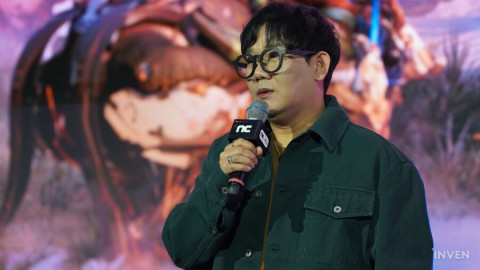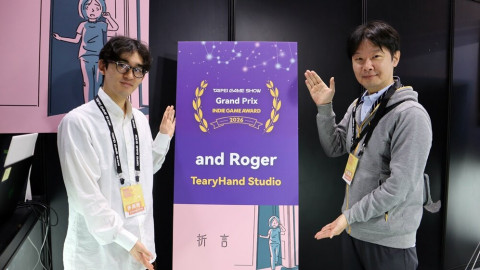
Ubisoft’s Assassin’s Creed franchise has been suffering from inconsistent quality for several years, with each new entry making gameplay and narrative additions while seemingly ignoring the improvements introduced in past games, and oftentimes the issues that plagued those games, as well. The struggle reached a head with the release of Assassin’s Creed Unity in 2014, a game that dumped that adventurous, carefree tone of the stellar Assassin’s Creed IV: Black Flag and replaced it with a by-the-numbers historical fiction tale, a convoluted and superfluous modern-day segment, and a rushed approach to next-generation console development that ultimately left the game in a broken state when it released.
The following year, Assassin’s Creed Syndicate fared better simply because it launched in a stable state, but it was becoming increasingly difficult to shake the feeling that the series had become stale. Protagonists Evie and Jacob Frye were pleasant enough, but they lacked the charisma of Ezio Auditore or the aggression of Edward Kenway. Its changes to “chase” sequences – no longer automatically failing players who lost sight of their target – helped to make the game significantly less frustrating, but Ubisoft stopped short of rethinking how it approaches mission design to avoid making chases so common to being with. As a result, Syndicate launched with little fanfare and Ubisoft chose to temporarily put the series on hold as it worked to make significant improvements for future installments. To do this successfully, the company must look to its past for inspiration and examine what made the best Assassin’s Creed games so successful. Fortunately, there is already evidence that Ubisoft is doing so.

In 2007, the original Assassin’s Creed helped to kick off a trend of open-world games bursting at the seams with the ever-alluring “content.” Side missions, optional locations, and challenges helped to keep players entertained for weeks or months without ever actually touching the main story – which, by definition, should be the most important part of the game. This design strategy continued to see success and even improvements in Assassin’s Creed II and its two sequels, but more recently the “map full of stuff” included with Ubisoft’s games has become a parody of itself, packed with so many optional activities that no players could ever hope to complete them all. On the back of the box, this is certainly appealing. No one wants a full-price game that they can wring dry in a weekend. But with so many different options, the quality of each individual piece suffers and its difficult for players to keep their attention on what they’re currently doing.
One game, Assassin’s Creed IV: Black Flag, managed to limit this scatterbrained mindset by leaning into the series’ spontaneity. As a pirate first and foremost, Edward Kenway’s short-term objective can change in an instant. Any passing ship can become his latest target, because to him and his crew, its rewards are just as valuable as those for killing a high-ranking Templar. “Side” content ceases to be left in the background, and instead becomes an important pillar of the game, without which the rest of the experience would feel hollow and empty.
It’s with this approach to optional activities that Ubisoft can significantly improve future Assassin’s Creed games. Even if they don’t feature ship battles and sea exploration prominently, as recent leaks for “Assassin’s Creed Origins” suggest, by cutting out unnecessary content that serves no other purpose other than “something to do,” every second of players’ time will feel more valuable and rewarding. Sure, this could mean that you’ll spend 20 hours with the game instead of 50, but you won’t feel like you’re wasting any of that time.

Of course, it wouldn’t be particularly wise for Ubisoft to just abandon the nautical features that made Assassin’s Creed IV so great, either. The game was criticized by longtime series fans for being an Assassin’s Creed game in name only; but as a piece of a larger whole, ship battles and hijacking help to add variety to a game that often boils down to “kill people and escape.” As Assassin’s Creed Origins is reportedly set in Egypt and will thus not take place primarily on the water, it should satisfy both Black Flag fans and those more interested in the “traditional” games.
But the historical-fiction of Assassin’s Creed is just one half on an increasingly complex whole. Since the beginning, the perpetual conflict between the Assassins and the Templars has been the driving force behind the historical setting of the games. Each piece of Altaïr and Ezio’s stories – ancestors of modern-day protagonist Desmond Miles – helped to push the series towards an enormous climax at the end of Assassin’s Creed III that seems to open future games up for endless possibilities. Instead, the modern-day content in recent installments has felt unnecessary and distracting, and it has detracted from the impact of past assassins’ stories. Though Evie and Jacob’s journey is exciting in its own right, without substantial ties to the series’ overarching narrative, it feels almost irrelevant.

This isn’t to say that Ubisoft should spend a substantial amount of time in its present day or attempt to translate the series’ gameplay mechanics into a modern setting – Assassin’s Creed III tried to do this with spectacularly terrible results. But it needs to make the most of the time it spends there, with clear forward movement that continues to move these events toward another climax, even if final, definitive resolution is nowhere in sight.
The Assassin’s Creed brand has certainly been damaged in recent years, but it isn’t too late for Ubisoft to right the ship and deliver on the high expectations dedicated fans have had for the last decade. There are genuinely innovative and worthwhile ideas present in even the roughest Assassin’s Creed games, and by recognizing them and finally cutting the supposedly sacred elements that have held the series back for years, it can finally return to its former glory. Should Ubisoft instead simply stay the course and continue with its incremental changes, we’ll be in for more disappointment.

Disclaimer : The following article was written freely based on the author's opinion, and it may not necessarily represent Inven Global's editorial stance.
Sort by:
Comments :0






